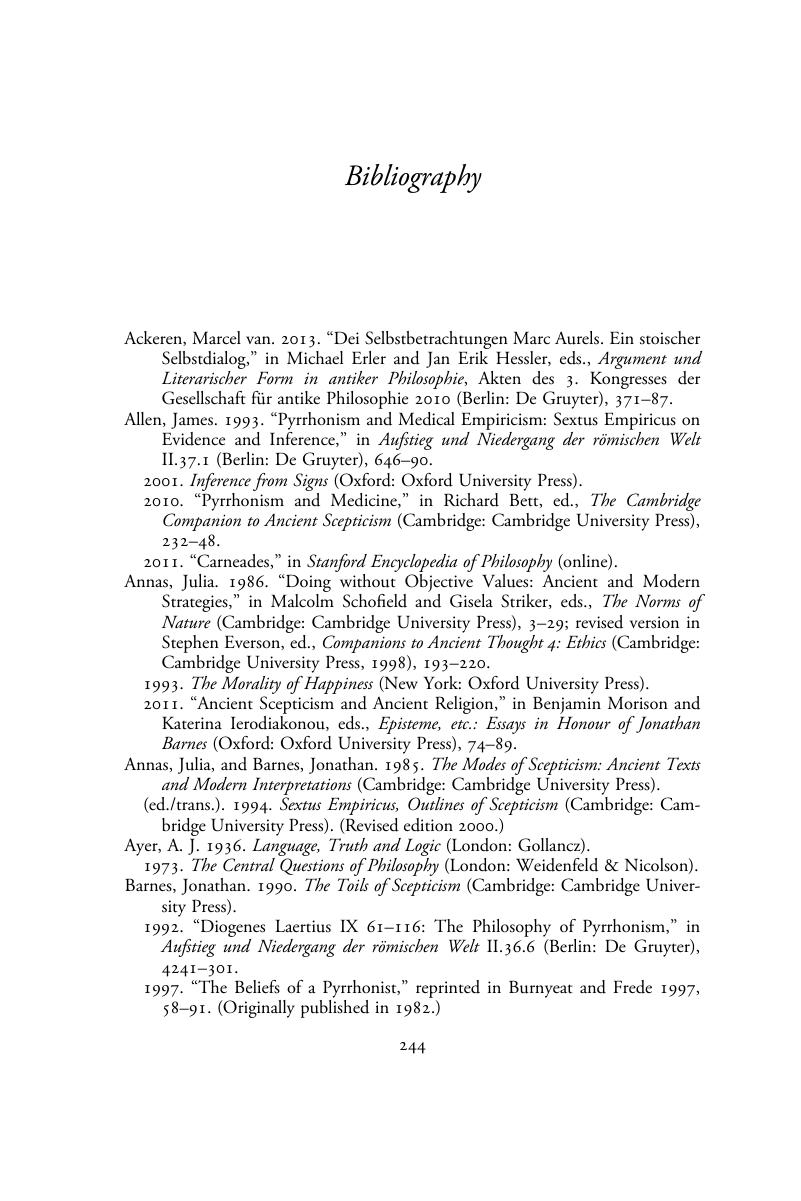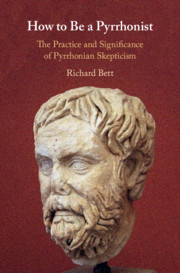Book contents
- How to Be a Pyrrhonist
- How to Be a Pyrrhonist
- Copyright page
- Contents
- Preface
- Acknowledgments
- Abbreviations
- Part I How the Pyrrhonists Present Themselves
- Part II Pyrrhonists at Work
- Part III Life as a Pyrrhonist
- Part IV Intersections of Pyrrhonism with Contemporary Thought
- Bibliography
- Index Locorum
- Index
- References
Bibliography
Published online by Cambridge University Press: 15 March 2019
- How to Be a Pyrrhonist
- How to Be a Pyrrhonist
- Copyright page
- Contents
- Preface
- Acknowledgments
- Abbreviations
- Part I How the Pyrrhonists Present Themselves
- Part II Pyrrhonists at Work
- Part III Life as a Pyrrhonist
- Part IV Intersections of Pyrrhonism with Contemporary Thought
- Bibliography
- Index Locorum
- Index
- References
Summary

- Type
- Chapter
- Information
- How to Be a PyrrhonistThe Practice and Significance of Pyrrhonian Skepticism, pp. 244 - 254Publisher: Cambridge University PressPrint publication year: 2019



